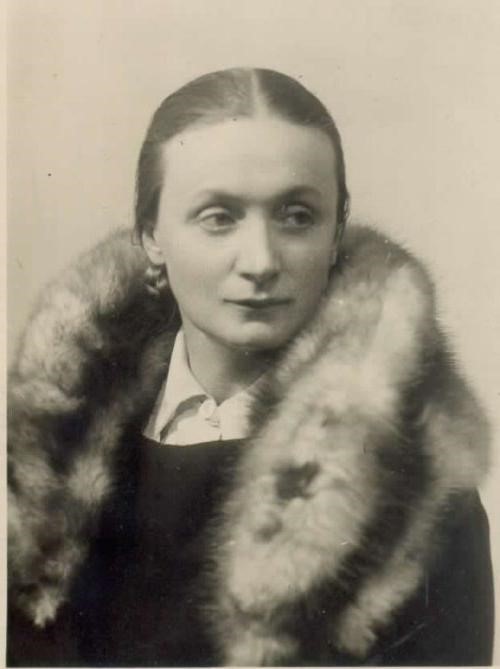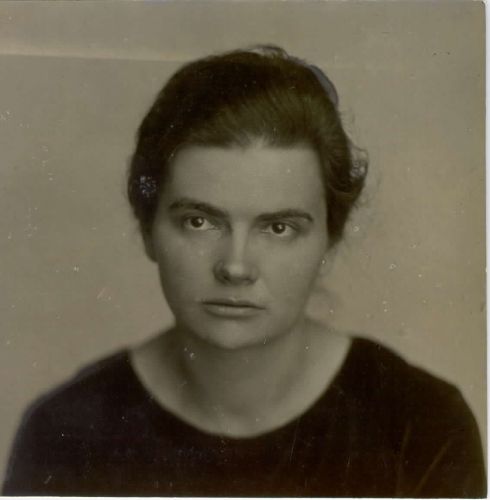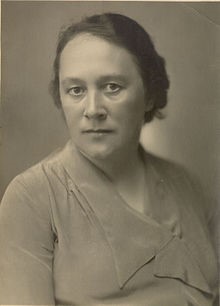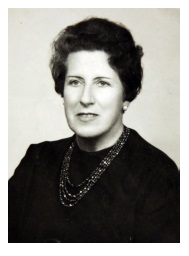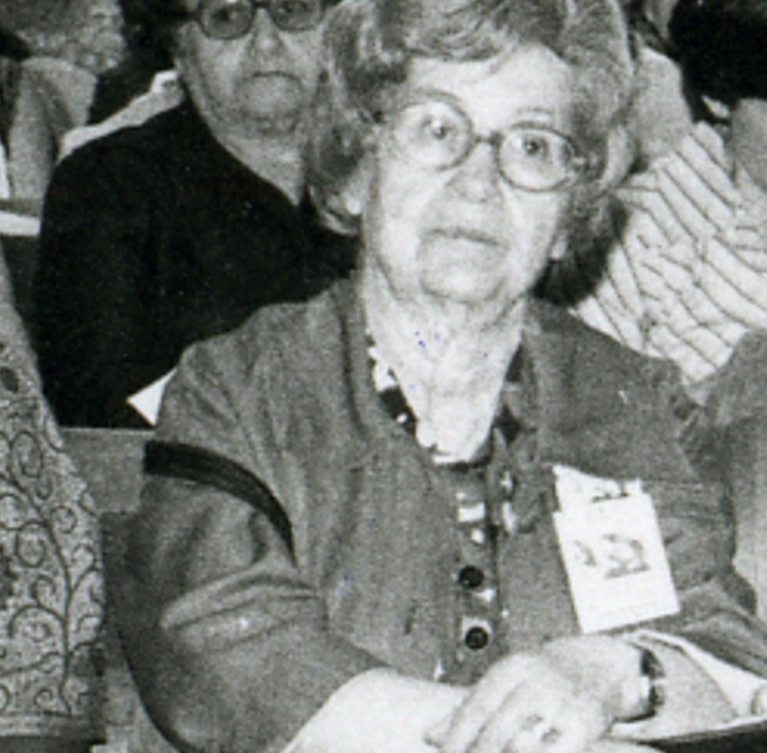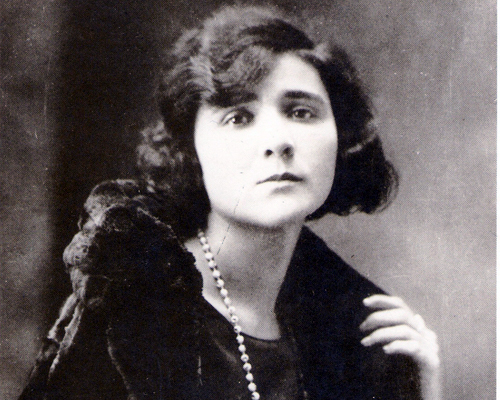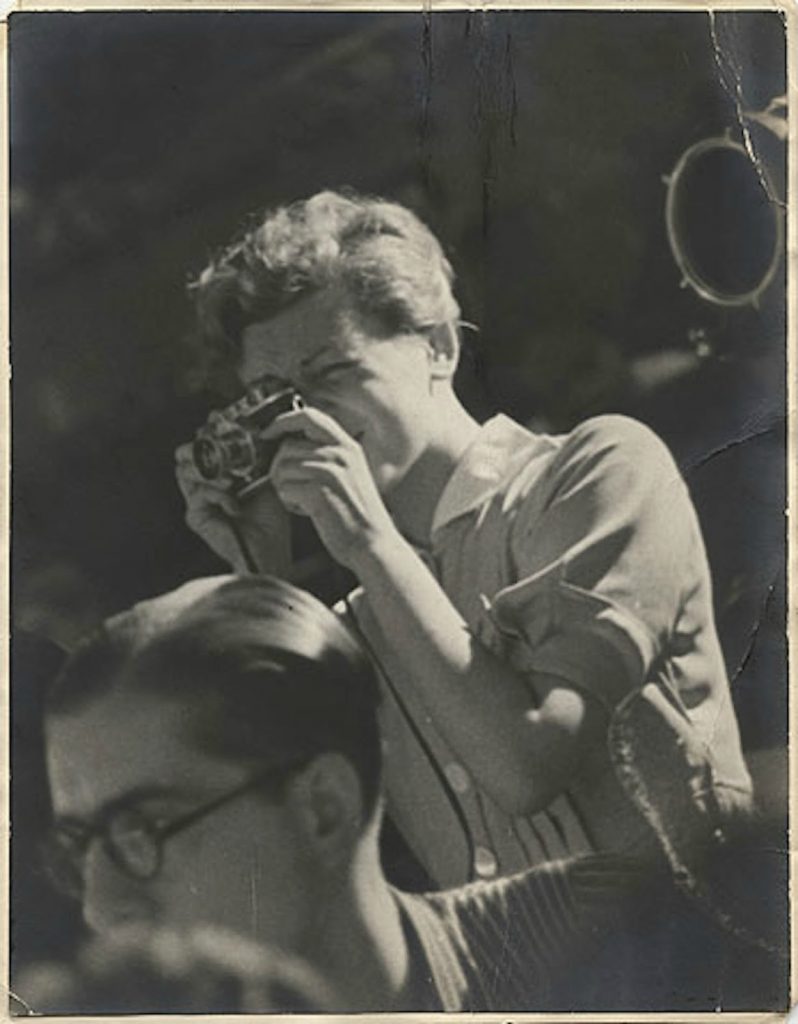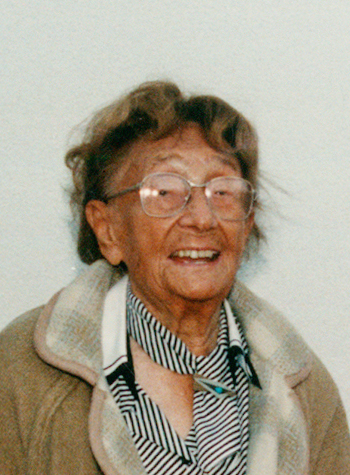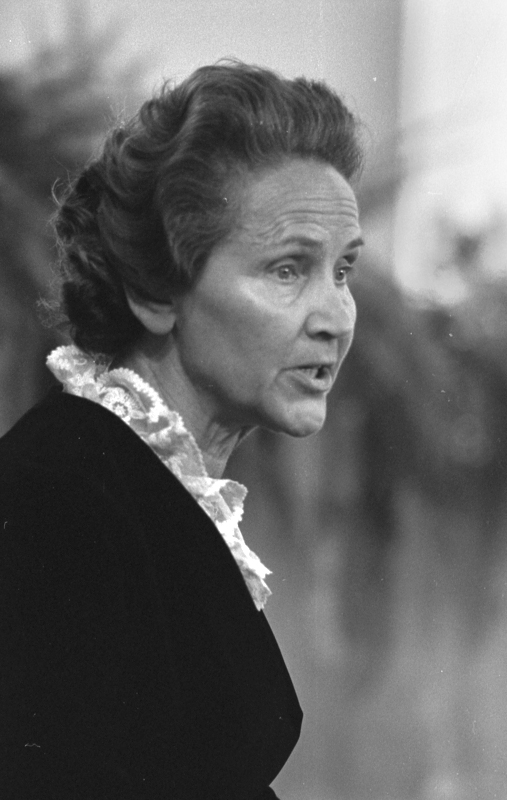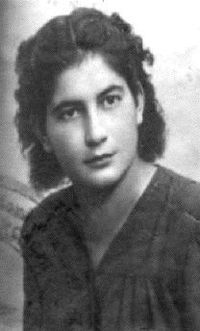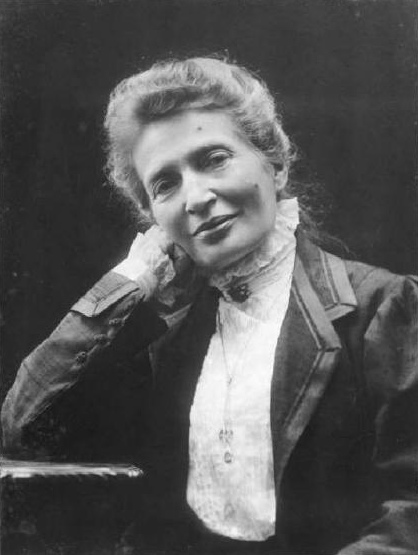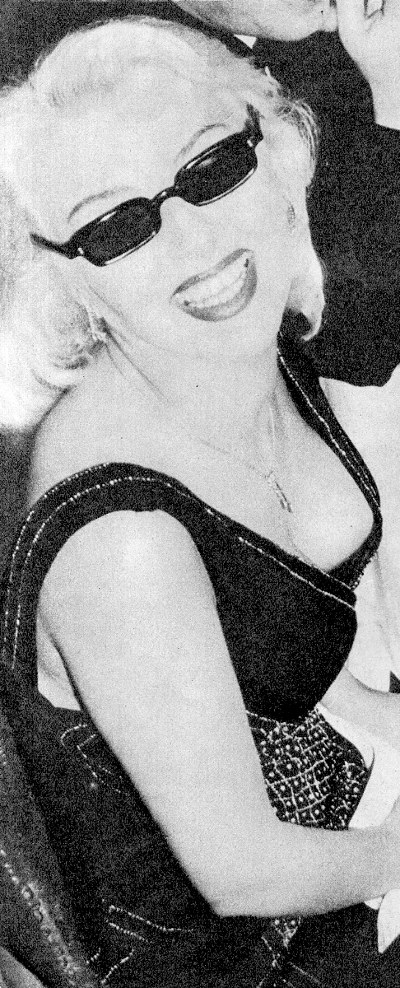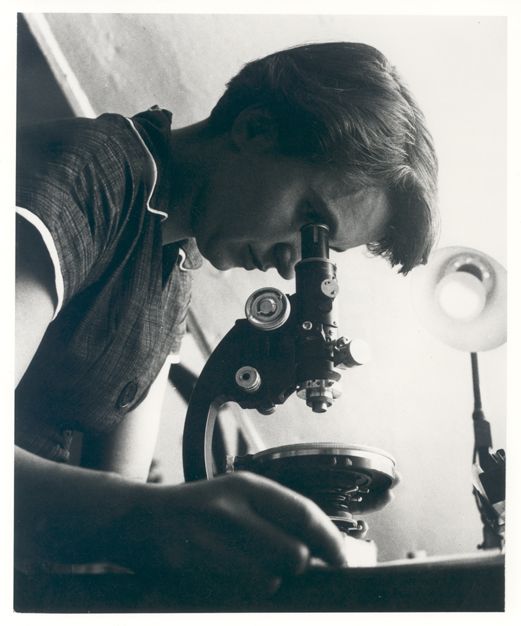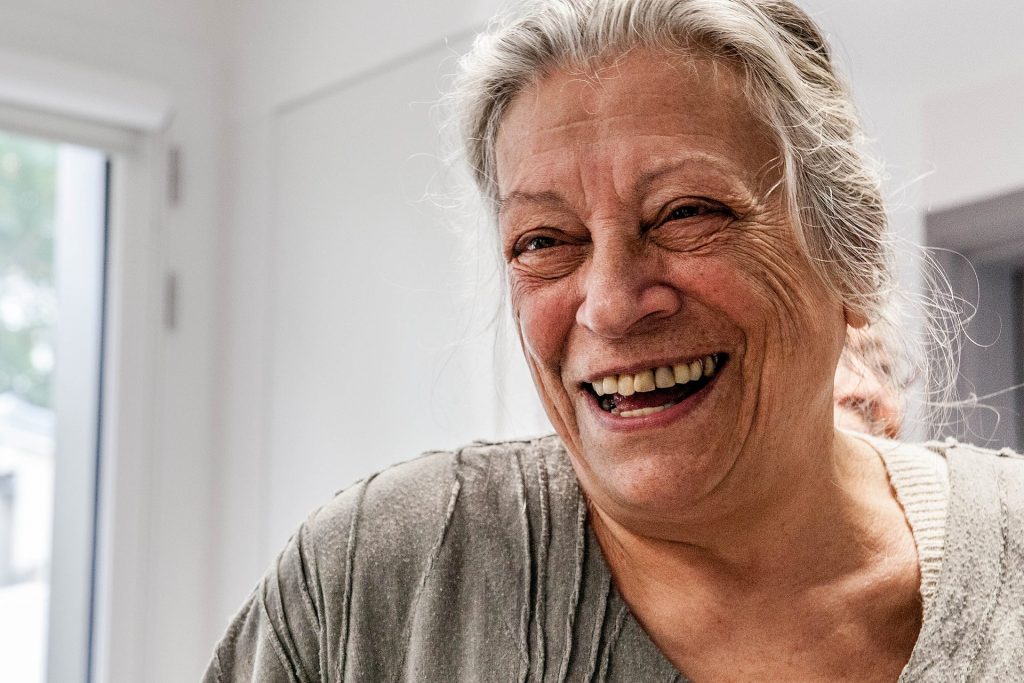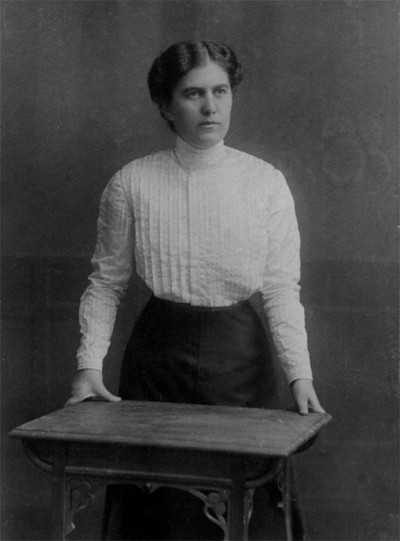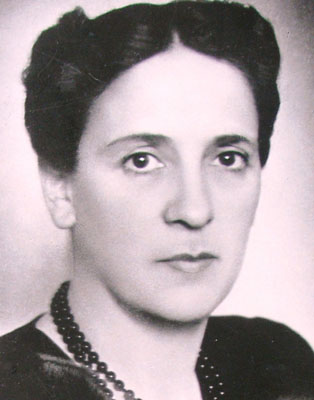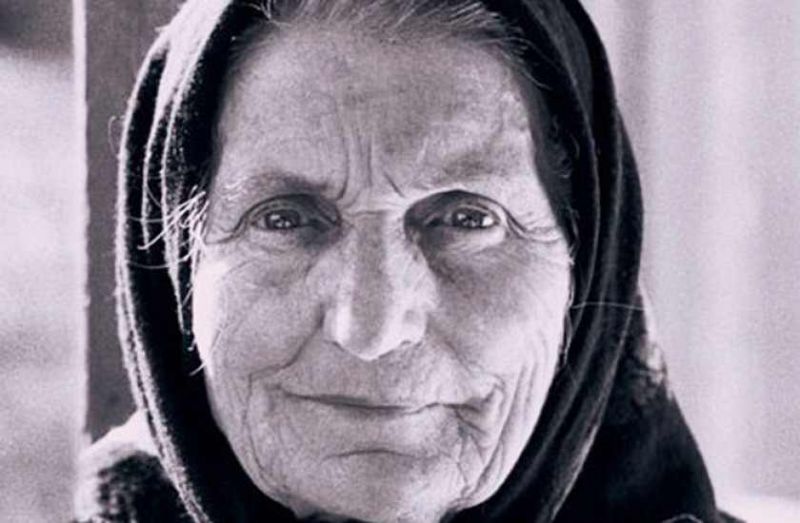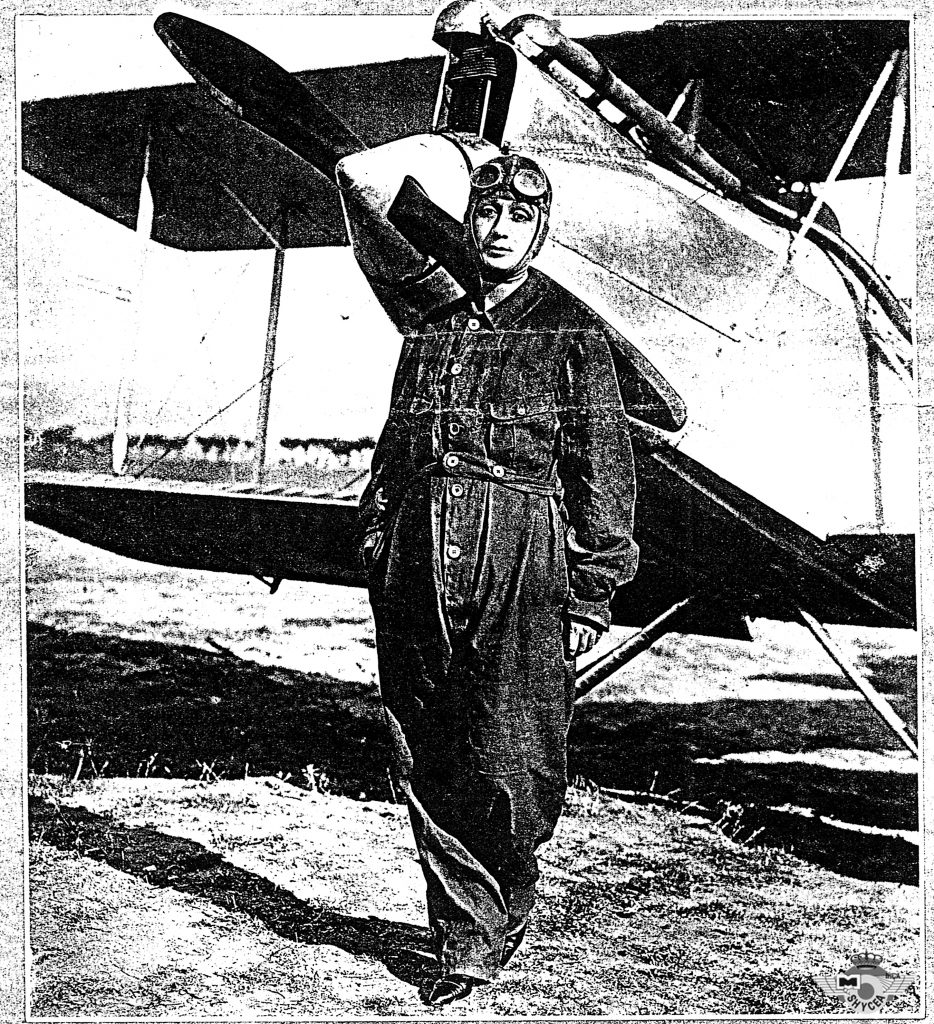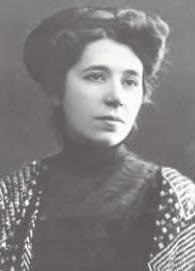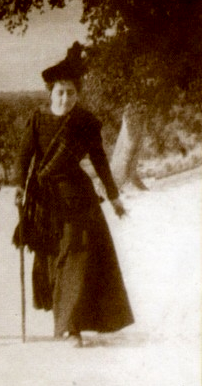
Researcher, philologist, educator, writer and active advocate of women’s rights. She is the first woman to graduate from a Spanish university with a degree in philosophy and writing. Her studies on Spanish ballads, carried out with her husband Ramón Menéndez Pidal, laid the foundations for research in the field, although only her husband’s name became known. She was also one of the first women to go to a gym to fight the arthritis she suffered from at a young age, a very unusual activity for a girl at that time.
Maria Goyri was born in Madrid and raised by her mother who made sure that her daughter received a very well planned and organised education at home. She continued her formal education and received the titles of Governess and Professor of Commerce as well as the title of a teacher. First, she attended the Faculty of Philosophy and Letters without enrolling, and a year later applied for permission to open a women’s study programme. The authorization was granted, but on the condition that she wouldn’t communicate with male students, enter the classroom next to the professor, and sit in a separate chair next to him during class. She was the first official female student in this faculty of the Spanish University, which she successfully finished in 1896. In 1909, she received her doctorate with a thesis on Lope de Vega and ballads. Maria Goyri met her husband at the Graduate School of the university, where Ramón Menédez Pidal was a professor. She became his student and assistant. The recovery of the oral tradition of the ballads and the life and work of Lope de Vega were the main lines of their philological research, which she combined with her work as a pedagogue and teacher, advocating a broad, liberal and mixed education. However, after the Civil War and during the dictatorship, she had to devote herself entirely to research and abandon her pedagogical activity. The full recognition of her research work was not given to her during her lifetime, but to her husband, whom she generously and discreetly supported, providing the material on which he could function comfortably in his personal and professional life.

